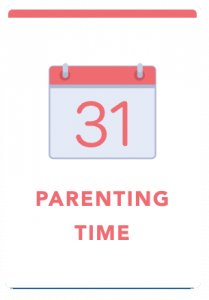Decision Makers
While parenting coordinators may be useful in some cases, they lack the ability to make binding decisions. If the parties desire the assistance of someone with binding authority to make decisions, they may agree to appoint a decision maker. The critical distinction here is that a decision-maker will issue decisions to file with the court, which eventually can bind the parties to the decision made. Although they may have binding authority, the scope of a decision maker’s power is limited by statute.
The primary limitation of a decision-maker is that they are empowered only to implement or clarify existing court orders concerning the parties’ minor or dependent children. Therefore, they aren’t allowed to create new or additional terms or deal with issues beyond those about the kids. Instead, their role is more for purposes of seeing that current court orders regarding children obeying.
Decision makers can be extremely beneficial in especially high-conflict cases. Because the decision maker is vested with binding authority, it may reduce costs associated with litigation. Furthermore, decision-makers tend to be more readily available to handle disputes than attempts to proceed through the courts. Finally, because the parties are allowed to select the appointed decision-maker, the parties may feel more satisfied with having been able to choose the individual responsible for making determinations.










